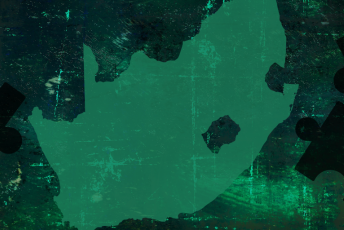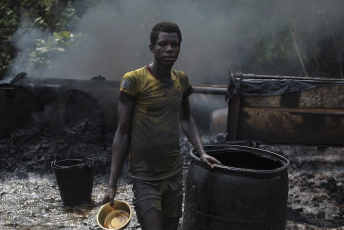An estimated ten thousand cattle rustlers attacked an Eastern Equatoria community on 23 April, killing 32 people, stealing 16 000 head of cattle from herders – and abducting over 100 women and children.
The abduction of women and children during cattle raids is fairly common along the South Sudan-Ethiopia border. Abductions there have surged since 2014 due to civil war in South Sudan and later in Ethiopia. Le Monde estimates that as of 2022, there were over 9 000 women, boys and girls in captivity along the border.
Alan Juma, a teacher in the Greater Pibor Administrative Area, said the abducted women and children are driven, along with cattle, to the South Sudan-Ethiopia border. Once there, he alleges that they are either immediately sold to wealthy households in need of children, or as additional wives to local wealthy households. In both cases, this often condemns them to a lifetime of servitude.
Tasew Gashaw, a researcher at the Wilson Center, points to the Murle, Dinka and Toposa communities – transhumant pastoralist ethnic groups that straddle the South Sudan-Ethiopia border – as key actors in abducting women and children while cattle rustling.
This practice is culturally accepted among pastoralist groups across the South Sudan-Ethiopia border and is driven by several factors. One is the Murles’ desire to increase their population – which forms less than 1% of both Ethiopia and South Sudan’s national populations. Abduction provides a means of ‘forcefully adopting’ children, especially by Murle families without sons.
The kidnapping of children is also motivated by the need to pay dowry for brides. Juma says young men abduct children from rival communities and sell them in exchange for cattle to pay bride wealth. The abductions also give young men a sense of heroism from invading enemy territory and violently taking cattle, women and children.
The cross-border network comprises warriors who carry out the raids and community elders who bless the raids and benefit from the sale of livestock and abductees. Arms traffickers are involved in selling the arms and ammunition used in the raids. Brokers at the border connect the kidnappers with members of other communities who buy abductees.
South Sudan’s Akobo town on the Ethiopian border is reportedly where most of the kidnapped women and children are sold. It is estimated that one child can sell for at least 20 cows, the equivalent of US$7 000. In Akobo, the sale of children is described as a ‘livelihood’ option. Once sold in exchange for cattle, abducted children often face sexual exploitation, forced labour, child marriage and slavery.
In 2016, the Ethiopian military crossed into South Sudanese territory to rescue over 100 Ethiopian children who had been kidnapped. And while both South Sudan’s government and the United Nations (UN) Mission in South Sudan have made efforts to trace and repatriate abductees, the threat of and motivations driving abductions remain. The government’s ransom payment for the release of abductees has further fuelled the problem.
In July 2024, an Ethiopia-South Sudan Joint Border Administrators and Governors meeting was held in Addis Ababa. Among the issues addressed were the abductions of women and children and cross-border violence. Delegates from South Sudan were drawn from the Greater Pibor Administrative Area, Jonglei State and Eastern Equatoria State. From the Ethiopian side, the delegates were drawn from Gambella Region leaders.
The meeting has been seen as the first of many in entrenching continuous engagement between border communities and strengthening inter-state cooperation in dismantling the cross-border network that facilitates cattle rustling and abductions.
Charles Lopeyok, a Project Manager at the Integrated Community Peace and Development Organisation in Kapoeta, South Sudan, told ENACT that strengthening cross-border inter-communal peacebuilding structures could also help trace abductees and prevent communities from retaliating.
This includes mobilising all stakeholders to implement the Pieri Peace Agreement, which encourages the participation of youth and women in inter-communal peacebuilding structures among border communities in South Sudan and Ethiopia. The agreement was signed by the cross-border communities of Murle, Lou Nuer, Nyangatom and Toposa in 2021. It established an Implementation Committee, comprising the youth, which is responsible for coordinating the reporting, tracing, rescue and rehabilitation of abductees, as well as their reintegration with families.
Inter-communal dialogue structures also have a role to play in enabling cohesion, joint tracing and safe passage of abductees back to their families, thus preventing revenge raids.
To further entrench continued engagement, the two governments should work closely with child protection actors such as Human Rights Watch to galvanise international support and raise awareness about the issue. This could lead to a broader coalition of international civil society actors, local non-governmental organisations and community-based organisations supporting government action in reporting on these cases and enhancing protection frameworks for vulnerable populations.
Lastly, the countries’ governments should put in place security and surveillance measures to prevent the cattle raids that lead to abductions. This would mean strengthening inter-communal cross-border cooperation between the Toposa, Murle and Anyuak communities along the Ethiopia-South Sudan border.
Willis Okumu, Senior Researcher, ENACT
Image: ICRC








